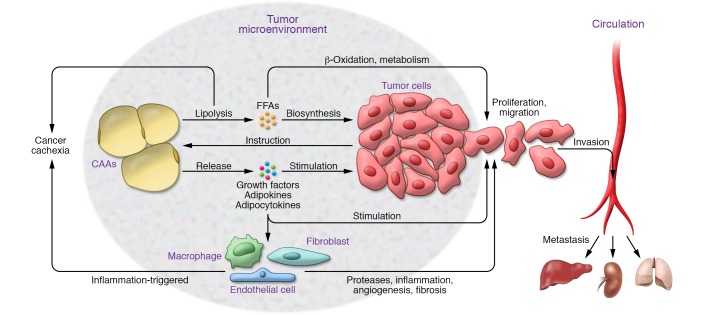Figure 1. Mechanisms of cancer-associated adipocytes in tumor growth, metastasis, and cachexia.
Malignant cells produce various soluble and cell surface signaling molecules to reprogram metabolic activity and production of growth factors/cytokines in adipocytes through endocrine, paracrine, and juxtacrine signaling mechanisms. After receiving signals from malignant cells, cancer-associated adipocytes (CAAs) produce various growth factors, adipokines, and adipocytokines that directly affect tumor cell growth and invasion. Alternatively, the adipocyte-derived factors have a significant impact on nontumor cells in the tumor microenvironment to modulate tumor growth, metastasis, and cachexia. The tumor cell–triggered metabolic reprograming in adipocytes releases metabolic products such as free fatty acids (FFAs) that will be used as energy fuel molecules to support tumor growth and metastasis. Lipolysis is also one of the key processes causing adipose atrophy and cachexia in cancer patients.

